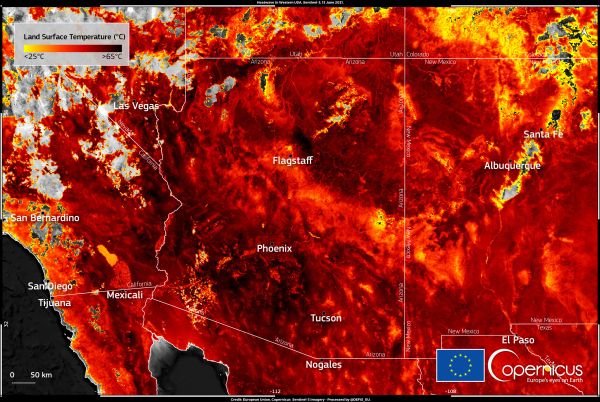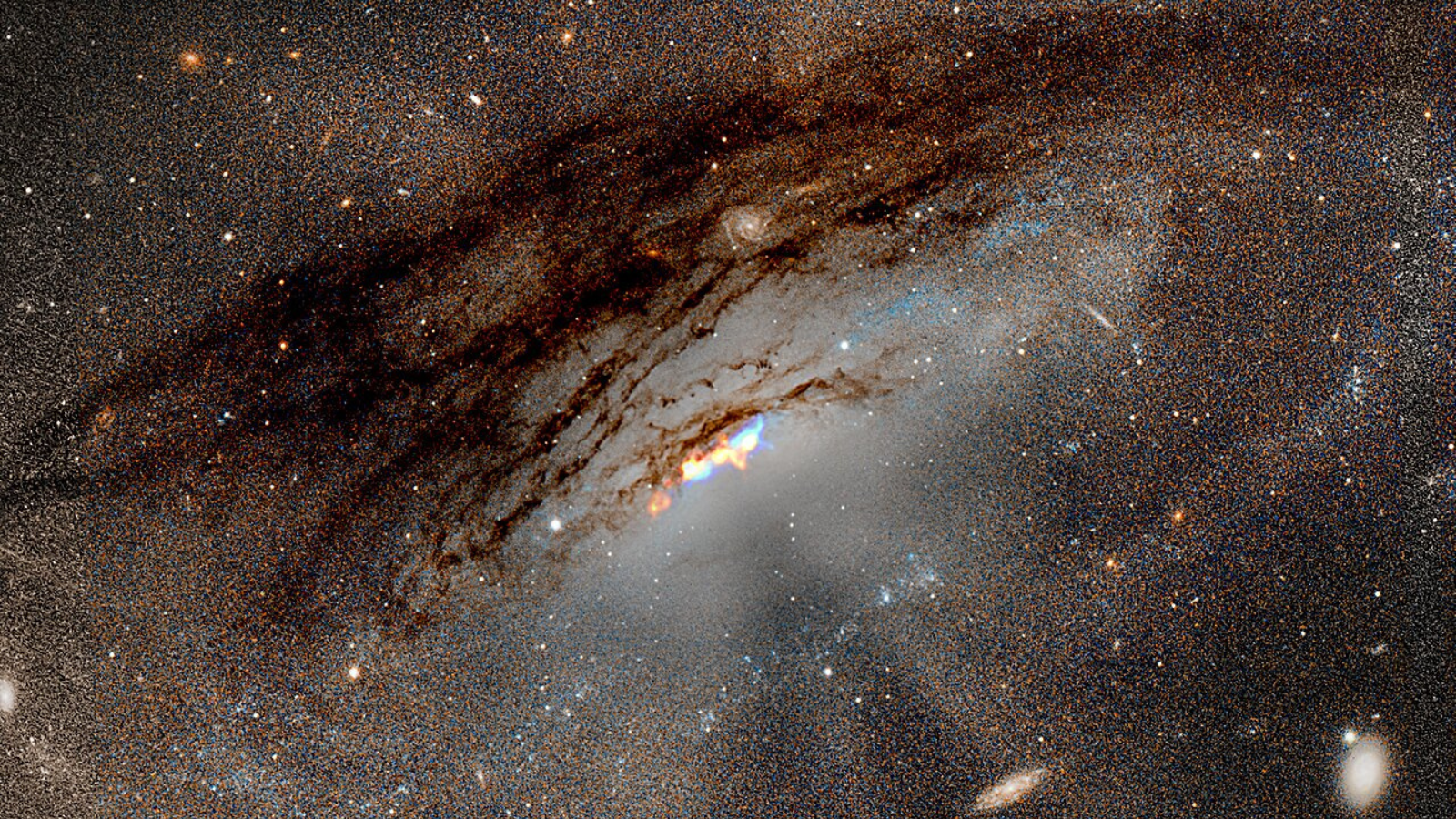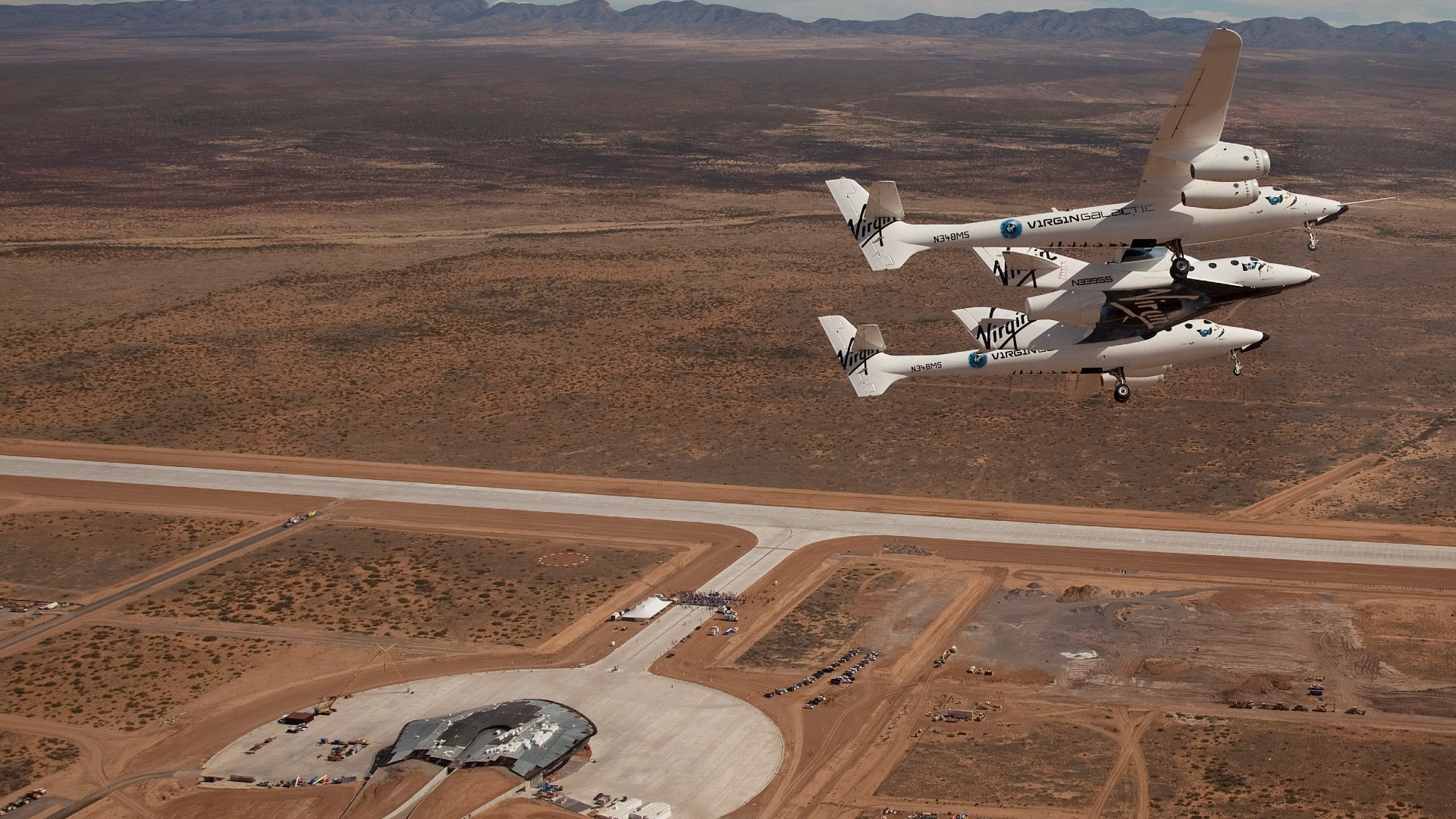June 2021 smashed heat records in North America
It was the hottest June in American history, and the fourth-hottest worldwide.

If the melting power cables in Portland, Oregon, weren't enough of an indication, new satellite data confirms what many sweat-drenched Americans could have guessed: June 2021 was the single hottest June on record in North America.
The new data comes courtesy of the European Union's Copernicus program, which produced climate measurements from billions of observations taken by satellite, aircraft and weather stations around the globe. According to the program's new June 2021 report, last month was also the fourth-hottest June recorded worldwide and the second-warmest June recorded in Europe.
While human-induced climate change has been steadily bumping up average summer temperatures year after year (2020 tied 2016 for the planet's hottest year on record, Live Science previously reported), a weather anomaly also contributed to the broiling temperatures in North America. The month saw record heat waves blast the Pacific Northwest and western Canada, with stagnant air bearing down on densely populated cities, like Seattle and Portland, for several days in a row. The culprit was a dangerous weather phenomenon called an omega block, which is essentially a dome of hot air trapped in place by atmospheric currents.
Related: 10 Steamy signs that climate change is speeding up
On June 28, Seattle saw its hottest day ever — a scorching 108 degrees Fahrenheit (42 degrees Celsius), or roughly 34 F (19 C) above the normal highs this time of year, according to The Washington Post. Not to be snubbed by American exceptionalism, Canada recorded national all-time high-temperature records three days in a row, culminating with a 121 F (49 C) day in British Columbia on June 29.
These records are not surprising, however; scientists have long predicted that global warming will result in ever-rising temperatures around the world. But the extreme June heat waves shed light on a new concern: The high-temperature records set in North America didn't just surpass the old records; they utterly smashed them. During the heat waves, several cities in the U.S. and Canada saw temperatures rise more than 7 F (4 C) above previous records, Peter Stott, a climatologist at the U.K. Met Office, told the BBC — a far larger temperature increase than expected.
The data is "telling us that changes in average climate are leading to rapid escalation not just of extreme temperatures, but of extraordinarily extreme temperatures," Stott said.
Get the Space.com Newsletter
Breaking space news, the latest updates on rocket launches, skywatching events and more!
Welcome to another Hot Climate Summer.
Originally published on Live Science.
Join our Space Forums to keep talking space on the latest missions, night sky and more! And if you have a news tip, correction or comment, let us know at: community@space.com.

Brandon has been a senior writer at Live Science since 2017, and was formerly a staff writer and editor at Reader's Digest magazine. His writing has appeared in The Washington Post, CBS.com, the Richard Dawkins Foundation website and other outlets. He holds a bachelor's degree in creative writing from the University of Arizona, with minors in journalism and media arts. He enjoys writing most about space, geoscience and the mysteries of the universe.










